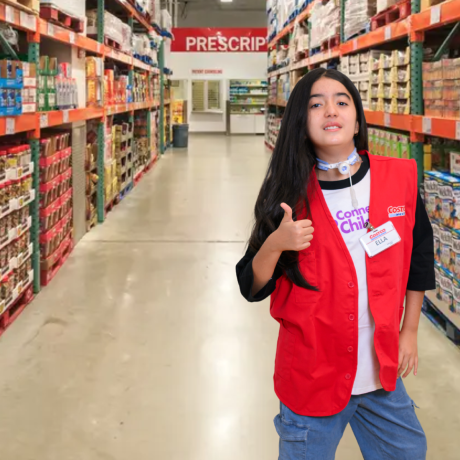Everything you need to know about Ellie is summed up in her response when she found out she had a rare autoimmune disease: “How much school will I miss?” Ellie is a strong student and a busy teenager, playing both softball and field hockey. She is also an accomplished seamstress, teaching the fine art of sewing to younger girls. Her maturity and wisdom are evident from the moment you meet her; she exudes a presence beyond her mere 14 years of life.
During Ellie’s first softball game of the season, she was hit by a ball. The strike raised a bruise, as you might expect, but over the next couple of hours, it kept getting worse. “The lump was black and blue and shouldn’t have gotten that big. It was very concerning how big it was getting,” said Ellie. By 4 o’clock that afternoon, Ellie had tiny microscopic bruises all up and down her legs, bruises that Jessica, Ellie’s mom, would later learn are called petechiae, tiny round brownish-purple spots due to bleeding under the skin. Jessica became extremely concerned: “I knew that wasn’t normal and thought bruising like this could be a sign of leukemia or cancer.”
Disconcerting symptoms and an emergency visit
By Monday morning, in addition to the petechiae, Ellie had a few black spots on her tongue, and Jessica had Ellie in the pediatrician’s office. He assured them both that what Ellie was experiencing was not leukemia but was immune thrombocytopenia. Based on Ellie’s symptoms, the family was advised to head immediately to the Center for Cancer & Blood Disorders at Connecticut Children’s. Jessica and Ellie rushed home, packed a few overnight items, and left instantly. Ellie said, “It was a very nerve-wracking experience. It was like I packed up quickly and was heading into the unknown.”
Ellie was immediately seen by Laura McKay, MD, pediatric oncologist and hematologist. Ellie had intravenous immunoglobulin therapy, a type of antibody treatment used to elevate platelet levels. Platelets are a type of blood cell that keep the body from bleeding too much.
Troubling Complications
Unfortunately, the immunoglobulin therapy can produce certain complications like aseptic meningitis, which is an inflammation of the brain and spinal cord membranes. By the next afternoon, Ellie felt horrible; she had a raging, throbbing headache and was extremely nauseated. She was having trouble focusing and needed ice packs to help alleviate the pounding headache she was experiencing.
After her two-night stay at Connecticut Children’s, Ellie went for weekly blood tests to monitor her levels and had weekly video visits. Ellie responded well to the treatments and her body has been able to replenish its own platelets.
For now, Ellie is happy to put that chapter behind her. She is focused on her softball season and considering which honors classes to take next year in high school.



